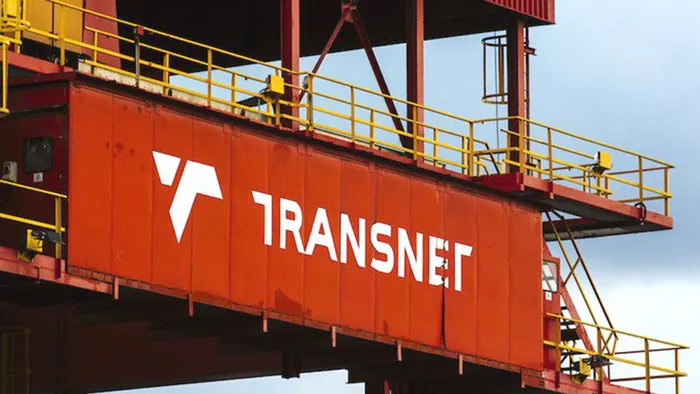We need to urgently work together to get SA’s logistics sector up and running

Over the past few months, two S&P and Moody’s downgraded Transnet’s credit rating – underscoring the urgency for real reform, says the author.
Image: File
South Africa’s logistics sector should be the engine of economic growth – yet it is weighed down by mismanagement, corruption, entrenched crime syndicates, unyielding labour unions, and crumbling infrastructure. The result is a bleak and unsustainable picture.
In response, the private sector has been forced into a survival mode, quietly fixing what it can and actively finding ways around the dysfunction. Operating on the principle that it is often “easier to ask for forgiveness than permission,” businesses across logistics industries are taking matters into their own hands simply to stay afloat and keep contributing to an economy in decay.
It is in this context that private participation across Transnet assets is such a glimmer of hope for logistics industry, and for the South African economy.
South Africa’s move – albeit slowly – to private partnerships at our national logistics assets makes sense. Many other countries have embraced what private partnerships can bring: innovation, efficiency, and investment discipline. The public sector then provides resources, expertise, and regulatory oversight. Together, these complementary roles can create more resilient systems. Much like a marriage, each partner brings distinct strengths that are most effective when combined.
This is not just a local consideration; it is part of a broader global trend in which governments are becoming progressively more reliant on private sector collaboration to ensure their own long-term sustainability. Some of these countries embracing private partnerships are even our closest neighbours.
But there is a real urgency as to why South Africa should be moving towards this model sooner rather than later.
Over the past few months, two S&P and Moody’s downgraded Transnet’s credit rating – underscoring the urgency for real reform. S&P said that Transnet would not be able to service its R137 billion debt without government intervention, and flagged the very high likelihood that the parastatal will miss its target of moving 250 million tons of freight by 2030.
South Africa’s ability to grow its economy, attract investment, and create jobs is directly tied to the efficiency and reliability of its logistics network. As a trade-dependent economy, the seamless movement of goods through ports, rail, and road infrastructure is critical for exports, industrial development, and regional integration. When this network falters due to through delays, congestion, or outdated infrastructure, the ripple effects are felt across every sector, from agriculture to mining to manufacturing.
A modern, well-functioning logistics system is a foundational requirement for sustained economic growth and competitiveness. International trade, measured at 65.2% of Gross Domestic Product in 2023, is the backbone of South Africa’s economy. Roughly two‑thirds of that trade moving through our eight major seaports annually, and the Durban port handles well over 60% of this trade alone.
But South Africa's freight and port sectors require urgent attention. Years of underinvestment, equipment shortfalls, and operational backlogs have slowed freight volumes, impacting business performance across industries. If we continue to fall short of key freight targets, as rating agency S&P warns, our already fragile economy will suffer.
Meanwhile, other African economies are capitalising on the shifting dynamics in global shipping.
Shipping companies, that are bypassing the Red Sea due to Houthi rebel attacks and travelling round the coast of South Africa, are increasingly docking at Maputo, Beira, and Walvis Bay, even when South Africa is their ultimate destination. If this trend continues, South Africa could lose its status as a regional shipping hub. Once trade routes shift, reversing them will be exceedingly difficult.
The $164 million upgrade of Mozambique’s Port of Maputo is underway, setting the stage for an expansion that will more than double the port’s container capacity within two years. Maputo’s port is benefitting from capital inflows by private operator Dubai World, an investment company that manages strategic trade investments for the government of Dubai and manages the Maputo container terminal.
Competing directly with South Africa, the Maputo port website promotes itself “as a gateway to southern Africa” and advertises land transport from the port into South Africa and neighbouring countries.
Mozambique has recognised and welcomed the importance of private-public partnerships (PPPs) that inject much-needed capital into upgrading infrastructure, while allowing governments to retain ownership of critical infrastructure and the land.
While this development is a boon for regional trade, it poses a serious threat to South Africa’s ports. Once a dominant player in Southern African logistics, South Africa now risks ceding its position to neighbouring countries that are modernising their port infrastructure through private investment.
This regional momentum is not only a warning sign for our ability to service global trade, but also highlights the need for South Africa to fast-track its own infrastructure upgrades through private partnerships, especially at key national assets such as the Durban Container Terminal Pier 2.
However, this project is currently on hold due to a legal dispute over the evaluation of a financial metric in the bidding process, despite the urgent need for modernisation. It is now two years since the Durban Container Terminal 2 concession was announced, and South African exporters and importers are still waiting for the promised private partnership investment and upgrades.
South Africa’s government has already signalled its commitment to public-private partnerships in infrastructure development. What is needed now is for all players involved to put the country’s economic future first. If there are further unnecessary delays, not only will South Africa lose billions in trade, but it will also watch its neighbours reap the benefits of modern, well-run ports while its own economy suffers.
Frank Diener, DMD Logistics Group
*** The views expressed here do not necessarily represent those of Independent Media or IOL.
BUSINESS REPORT